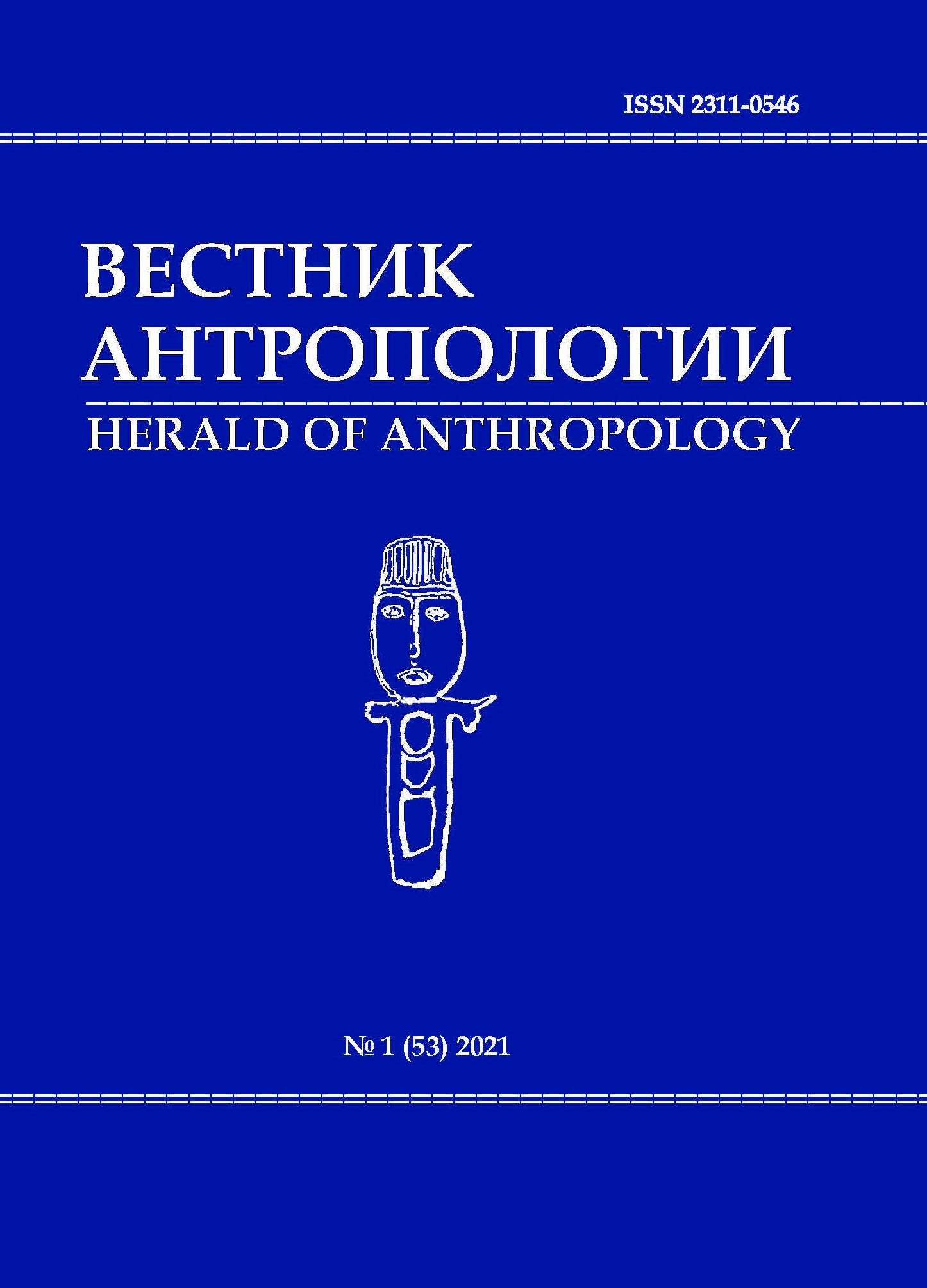On the Complex Ethnic and Linguistic Identity of the Population of Chuvashia
DOI: 10.33876/2311-0546/2021-53-1/104-120
Keywords:
the Chuvash Republic, self-identification, ethnicity, native languages, cultural complexityAbstract
Materials of the sociological surveys of the population of Chuvashia in 2015-2019 on the problems of ethno-cultural development and interethnic relations in the Republic are presented. Russian and Chuvash languages have been identified as native languages. The results indicating that a part of the respondents choose a complex ethnical and linguistic identity and feel themselves as both Russians and Chuvash are quite stable. Choosing two (rarely three) native languages is usually two to three times more common than recognizing oneself as a carrier of a complex ethnic identity. Comparison of judgments about certain ethno-cultural situations suggests that it is possible to distinguish a group of people, primarily with a complex ethnic identity, into a relatively independent group, drifting with their own assessments and preferences between groups of Russians and Chuvash, with the transition in certain issues of the boundaries of groups, whose opinions they mostly adhere to.
For Citation: Boyko I.I., A.P. Dolgova, and V.G. Kharitonova. 2021. On the Complex Ethnic and Linguistic Identity of the Population of Chuvashia. Herald of Anthropology (Vestnik Antropologii) 1 (53): 104–120.
References
- Arutiunian, Yu.V., and L.M. Drobizheva. 2014. Proidennye puti i nekotorye problemy sovremennoi rossiiskoi etnosotsiologii [Covered ways and some problems of modern Russian ethnosociology]. Sotsiologicheskie issledovaniia 7: 102–112.
- Boiko, I.I., and V.G. Kharitonova. 2016. Slozhnye etnicheskie identichnosti: problemy izmereniia. [Complex ethnic identities: problems of measuring]. Etnopoliticheskaia situatsiia v Rossii i sopredel'nykh gosudarstvakh v 2014 godu: ezhegodnyi doklad 1: 140–146. Moscow: IEA RAN.
- Drobizheva, L.M., and S.V. Ryzhova. 2015. Grazhdanskaia i etnicheskaia identichnost' i obraz zhelaemogo gosudarstva v Rossii. [Civil and ethnic identity and image of the desired state in Russia]. Polis. Politicheskie issledovaniia 5: 9–24.
- Guboglo, M.N. 2003. Identifikatsiia identichnosti: etnosotsiologicheskie ocherki [Identification of identity: ethno-sociological essays]. Moscow: Nauka.
- Khabenskaia, E.O. 2006. Etnicheskaia identichnost': podkhody k problem. [Ethnic identity: approaches to the problem]. Biulleten' Vladikavkazskogo instituta upravleniia 20. http:// world.lib.ru/ k/kim_ german_ nikolaewich/ 4030-3.shtml
- Nizamova, L.R. 2013. Smeshannye etnicheskie identichnosti v mul'tikul'turnom obshchestve. [Ethnic identity: approaches to the problem]. In: Etnosotsiologiia v Tatarstane: opyt polevykh issledovanii: sb. statei k iubileiu Leokadii Mikhailovny Drobizhevoi. [Ethnosociology in Tatarstan: field research experience: collection of articles dedicated to the anniversary of Leokadia Mikhailovna Drobizheva], 171–183. Kazan': In-t istorii im. Sh. Mardzhani AN RT.
- Tishkov, V.A. 2003. Rekviem po etnosu: Issledovaniia po sotsial'no-kul'turnoi antropologii [Requiem on ethnos: Studies in socio-cultural anthropology]. Moscow: Nauka.
- Tishkov, V.A. 2005. Etnologiia i politika: stat'i 1989–2004 godov [Ethnology and politics: articles in 1989–2004]. Moscow: Nauka.
- Tishkov, V.A. 2011. Rossiiskaia natsiia: stanovlenie i etnokul'turnoe mnogoobrazie [Russian nation: formation and ethno-cultural diversity]. Moscow: Nauka.
- Tishkov, V.A. 2013. Rossiiskii narod: istoriia i smysl natsional'nogo samosoznaniia [The Russian people: the history and meaning of national identity]. Moscow: Nauka.
- Titova, T.A., and V.E. Kozlov. 2014. Etnicheskaia identichnost' v strukture sotsial'noi identichnosti molodezhi Respubliki Tatarstan (na primere grupp etnicheskogo bol'shinstva) [Ethnic identity in the structure of social identity of the young people of the Republic of Tatarstan (on the example of ethnic majority groups)]. In: Pozitivnyi opyt regulirovaniia etnosotsial'nykh i etnokul'turnykh protsessov v regionakh Rossiiskoi Federatsii: materialy Vserossiiskoi nauchno-prakticheskoi konferentsii [Positive experience of regulation of ethno-social and ethno-cultural processes in the regions of the Russian Federation: materials of the all-Russian scientific and practical conference] Kazan', 25–27 sentiabria 2014 g., 121–125. Kazan': Institut istorii im. Sh.Mardzhani AN RT.
- Viner, B.E. 2005. Formy etnichnosti, byvaet li u etnosa sushchnost' i chto storonniki akademika Bromleia mogut vziat' u novykh teorii [The forms of ethnicity, whether an ethnos has an essence and what supporters of academician Bromley can take from new theories]. Zhurnal sotsiologii i sotsial'noi antropologii. Vol. 8. 2: 142–163.
- Zeleneeva, G.S., O.V. Orlova, and V.I. Shabykov. 2020. Mezhkonfessional'nye i mezhnatsional'nye otnosheniia v Respublike Marii El (materialy sotsiologicheskogo issledovaniia 2019 goda): nauch.-statistich. biulleten' [Interfaith and interethnic relations in the Republic of Mari El (materials of a 2019 sociological study)]. Ioshkar-Ola: MarNIIIaLI.





















